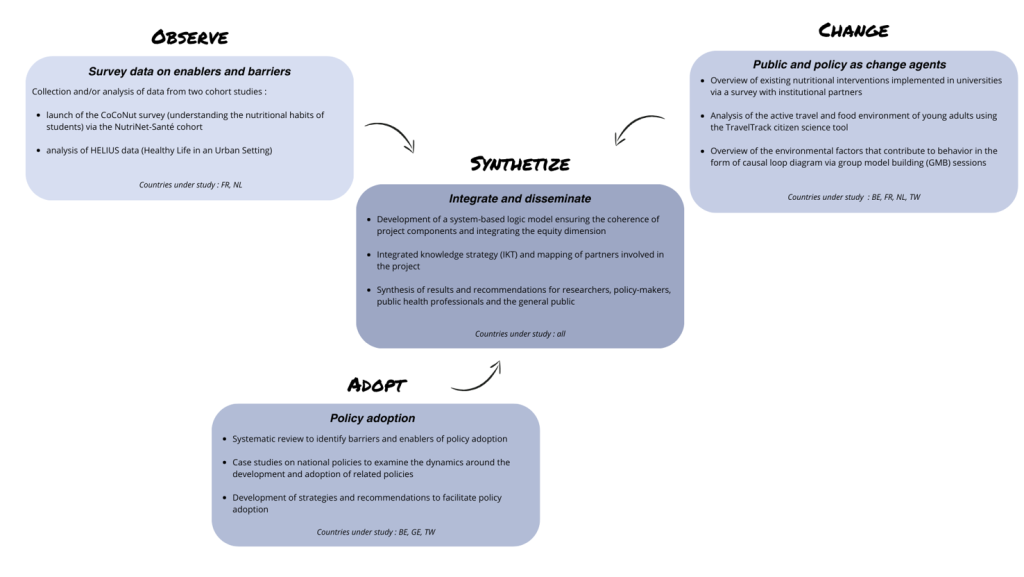What does YAHEE stand for ?
Young Adults in Health-enhancing Equitable Environments.
What is the project timeline ?
The project was launched in April 1st, 2024 and will last 3 years.
Which countries are involved ?
The project involves four European countries (Belgium, France, Germany, the Netherlands) and one Asian country (Taiwan).

Who is funding the project ?
The project is a European initiative responding to the call for projects launched by ERA4Health, HealthEquity 2023. Each country is also financing the project via different organizations : The Research Foundation Flanders – FWO (Belgium); The Dutch National Organization for Health Research and Healthcare Innovation – ZonMw (the Nederlands); The French National Research Agency – ANR (France); The Federal Ministry of Education and Research – BMBF (Germany); The National Science and Technology Council – NSTC (Taiwan).
What is the main goal of the project?
To understand which environmental factors act as levers and barriers to the adoption of health-promoting dietary and physical activity behaviors among young adults in disadvantaged socioeconomic positions, particularly students.
What is the target population?
Many of the measures examined by YAHEE are likely to benefit the population as a whole. The project’s main target group are, however, young adults (18-25 years) as the transition from adolescence to adulthood is viewed as a critical period for developing new lifestyle habits. Some of the work done by YAHEE focuses on specific groups:
- Young adults that may experience economic barriers: the current cost of living crisis combined with the consequences of COVID-19 pandemic accentuate concerns for future health of this population.
- Students in tertiary education (college/university and vocational schools)
What are the methods mobilized?
YAHEE uses innovative strategies based on a systemic and participatory approach. Field studies will use a new digital tool allowing young European citizens to monitor their living environments for promotion of active transport and healthy food behavior. Group model building (GMB) will be used as well throughout the project allowing active involvement of citizens, local partners and policy-makers in the research process as much as in defining its implications for practice and policy.
Who’s in charge of the project?
YAHEE relies on multi-disciplinary research, including European and Taiwanese investigators with an established research track record in fields spanning over nutrition; physical activity measurement and promotion; health geography and spatial analyses; epidemiology; public health and prevention of non-communicable diseases; political science and policy analysis; citizen science and participatory approaches. This high-level research consortium will work closely, from the start, with young adults, local partners and policy makers.
What are the main steps of the project?
YAHEE follows a well-defined plan with four complementary work packages detailed below. A coordination team ensures integrated and timely progress as well as appropriate ethics and data management.

